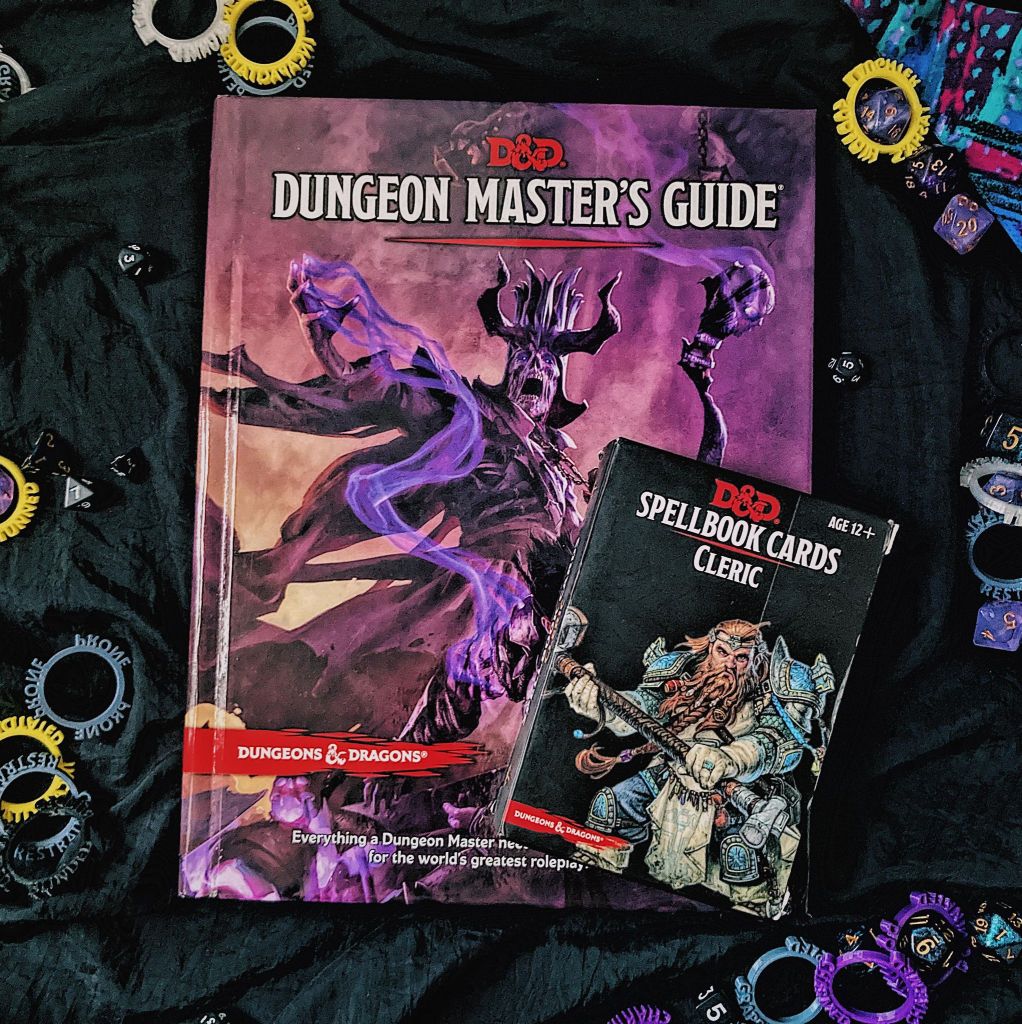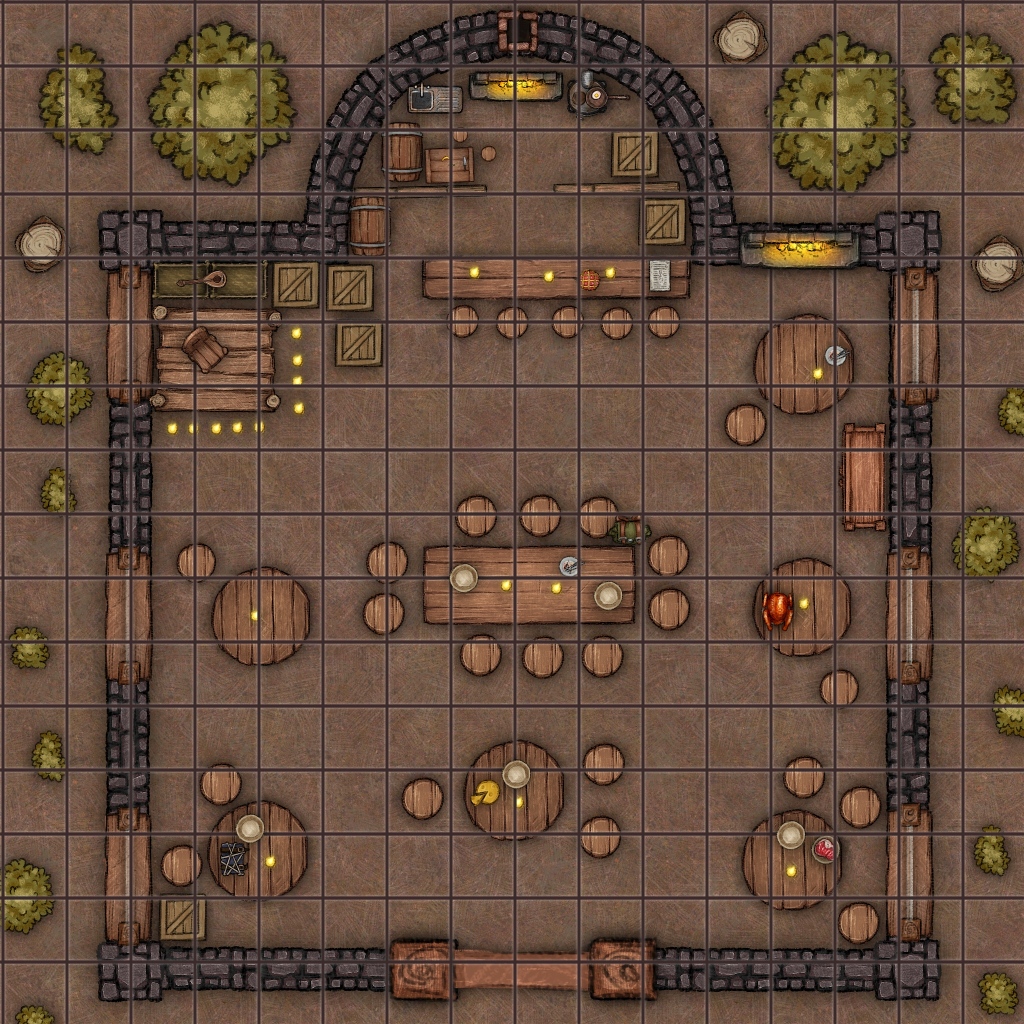
New Year, New Dungeons and Dragons Campaign? Perhaps you’re not quite there yet and hosting a one-shot or two is more up your alley. Whatever the motive, planning the first game of any adventure can seem daunting. Luckily, the core event of your session is pre-determined; the heroes have to meet. All you need now are a place, plot, and some people – the definition of a manageable workload. Except, your wizard rolls a Nat 20 Intelligence Check, figures out that her father is her brother, pulls out some bat guano and pulverises your starter BBEG for 96 points of fire damage. Holy shit, sick and rad indeed, but… now what?
Here are some suggestions on how to maximise your chances of running a smooth and interesting first Dungeons and Dragons game.
Playtest or Kick-off
Typically, a session 0 and session 1 of Dungeons and Dragons differ in structure and level of preparedness. Session 0s can act as improvisational games where adventurers playtest class and race combinations, try out roleplay accents that they are unsure of, or metagame and ask questions that might otherwise disturb the natural flow of the session. On the other hand, nothing says that a session 0 cannot or should not be the actual kick-off of your campaign or two-shot. You might well feel more comfortable with a pre-written set of intrigues. What matters above all is transparency between Dungeon Master (DM) and players. Talk to your party about what they expect of a first game – this includes addressing triggers and consent – and being honest with them about the kind of adventure you’re looking to run.
Set the mood

Determining the type of game you’re hosting includes setting the appropriate tone and mood. Whether you tend to rely entirely on theatre of the mind, or have a proclivity for fully-fledged battle maps, D&D is always about immersion. Even diehard metagamers rely on a constant commitment to breaking character. To that effect, there are ways in which a game can be made to feel like quasi-VR madness, where everyone is an actor in the universe woven collectively by DM and players.
Narrative
- Adopt the mindset of becoming your Non-Player Characters (NPCs)
- Adjust your tone of voice to fit the mood of narrative descriptions
- Consider register and mood; for example, formal RP English for a Victorian Era setting
- Consider word choice and mood; “deep dark pit” is serious, and “big-ass hole” is comedic
- Make use of silences and pauses to heighten suspense and punctuate important information
- Rely on fast-paced narrative for (pre-)combat, urgency traps, and timed missions
- Practice accents, timbre, pitch, tone, pace, and linguistic quirks
- Study sound effects and try to incorporate them into your narrative
Audio-visual
- For the hearing and seeing community, audio-visual stimuli can be a crucial step to achieving immersion
- Make use of tabletop audio programmes or cherry-pick your own music and ambience playlist
- Platforms such as Watch2Gether, or bots like Groovy on Discord, facilitate autoplay and looping
- Free battle maps, ideal for combat, can be made on Inkarnate, as well as other platforms
- Online whiteboards like AWW Board provide a backdrop for your session for maps, NPCs, and minis

First encounters
The mood has been set and the main event is certain: forming a party of people who trust each other enough to venture out on deadly quests together. Though the topic is simple enough, allowing for players to become a cohesive unit organically without engaging in illusionism or railroading is a big question mark DMs often grapple with.
With only two or three players at your table or on your screen, the possibilities of planning a narrative-only session 0 that allows for players to find each other naturally are endless. The story can jump from player to player until they find each other, or follow a linear timeline. The goal will almost always be to end up in the same location with a mission that is, to some degree, shared. Having some plot elements that tie characters together beforehand is helpful, and will have them wanting to work together, either out of empathy, sympathy, or necessity. Although this might give the narrative a “chosen ones” feel, injecting this into the larger picture early on means less railroading overall.
Flashbacks not railroads
Due to the tedious nature of meeting sans Deus Ex Machina and how time consuming it can be, Dungeon Masters who have more than a couple of players might lean towards preparing a session 0 that relies heavily on railroading the players into meeting up at a tavern, palace, shop, or battlefield. Upon arrival, five or more strangers are suddenly thrust into the same situation and must all find time to quickly develop a connection.
Though railroading players in a session 0 is, in my opinion, entirely acceptable and sometimes even necessary for sheer practicality, there are ways of avoiding this. Instead of having players travel to the same location in real time, give them a chance to delve into their past. They could all start off in the same location, together in a room for example, and are in each other’s company already for reasons that will soon be revealed. Cue a series of flashbacks that allow them to snoop on each other, so to speak, and catch a glimpse of what other characters are like without engaging in unreasonably deep and meaningful conversations on day one.
A flashback is also a useful tool for DMs as it provides them with a steerable narrative that is limited; as we are in the past, not much can be changed about where the players find themselves now and what their quest is. However, players can impact the “how”, and some choices or rolls might affect the future, i.e., the present. In tandem with this impact, players are able to develop their characters and roleplay what kind of backstory they intend to embody.
Of course, a more light-hearted approach that handles relationships with humour could erase the need to care about meeting organically, or about bonding as companions altogether. The vibe of your game might just be listen here you piece of shit gnome, I don’t give a hoot about your problems, but you’re coming with me, and that’s hilariously okay too.
The Tavern Trope

First encounters inevitably beg the question of where the party will meet. If you’re a seasoned Dungeon Master, you’ll probably want to show your players something unique, and discount the idea of a medieval tavern entirely. That said, if you’re dealing with a bunch of first-timers, The Tavern™ often fulfils novice player TTRPG expectations, and denying them this so-called rite of passage could be a disservice to their entry into D&D.
The answer to this conundrum is simple enough – ask your players about the fantasy worlds or locations they are interested in. Of course, DMs should take their own preferences into account too – never put forward a proposal that doesn’t speak to you, and always be honest with your table, lest you be unexpectedly stuck for five years in a K-Pop-themed campaign set in outer space. Come to think of it, that sounds kind of interesting…
Nat 20s, Nat 1s, and Flukes
For DMs that prefer to be overprepared like myself, it’s often hard to come to terms with the improvisational nature of D&D, and the very real possibility of having to deal with many unforeseeable events determined by dice rolls alone, or unanticipated Player Character (PC) choices.
Strokes of luck
Beyond making sure you aren’t too set in the story you have in mind, there are techniques you can use to deal with the unplanned, or the improbable. For example, a PC might roll a Nat 20 Intelligence Check on a piece of lore you were hoping would remain a mystery for half of the campaign. This is a stroke of good luck that has the potential to warp any DM’s plans, and yet the best way to avoid feeling defeated is by 1) understanding from the get-go that anything you prepare can be subject to a Nat 20 or a Nat 1, 2) recognising that this is a moment of utter satisfaction for the player and reward them with the answer. After all, there will be other obscure mysteries to come.
Narrating improbabilities
Other times, Nat 20s and Nat 1s have less to do with taking the DM by surprise, and more to do with managing a situation that seems improbable, or virtually impossible. Dungeon Masters and D&D players Brennan Lee Mulligan and Lou Wilson discuss such tactics in detail in Dimension 20’s Adventuring Academy episode Creating Rounded Characters. Other than the by now well-known “yes and” rule of improv that seems to fix any situation, unlikely events can be narrated in ways that make them seem more probable. Here are some examples from my own campaigns and one-shots (hosted and played):
- Half-elf Cleric rolls a Nat 20 on dragging an unconscious polymorphed Firbolg Monk (bear) out of a pit
- Kenku Rogue rolls a Nat 1 Dex Check on tinkering with a lock in a Silverymoon library
- Warforged Druid with proficiency in Perception rolls a Nat 1 Perception Check on seeing a house, twice
- Halfling Wizard rolls a Nat 20 Strength Check on pulling a 6ft Warforged Druid out of a village well
- Fire Goliath Barbarian rolls a Nat 20 on an Acrobatics Check to jump over a dozen fragile tavern stools
- Fire Goliath Barbarian rolls a Nat 1 on a melee attack roll, inside a closed tavern against one enemy
All of these situations seem unlikely, and can be difficult to justify on the spot; however, adapting your perspective to favour each PC’s individual qualities and flaws can help. The Half-elf Cleric was suddenly inspired by God, the Kenku Rogue hasn’t slept for 2 days, the Warforged Druid is lost deep in thought, the Halfling Wizard cleverly repositions her companion so that they may use their own Strength to get out of the well, and the Fire Goliath Barbarian is so strong that his momentum pushes him forward, somersaulting over all the old furniture, unfortunately causing him to mistime the swing of his axe.
Balanced encounters
Fluke rolls can also be tackled with balanced encounters. Preparing beforehand that X amount of enemies at level Y will storm a tavern if the BBEG drops below 50% HP before a specified time can often solve PCs being accidentally overpowered (OP). Balancing also makes combat fairer and more interesting.
Though some might interpret this type of balancing as a form of railroading, relying on logic is enough to support this method; how many times has a superhero or supervillain prepped some backup in the event that they should meet their demise? You know, the whole “If I’m not back in 10 minutes, send in the tanks.” You get the gist.
Remote D&D
Despite all of these pointers, the 2020+ covid-19 pandemic has led to a decrease in IRL gameplay, and a huge shift towards remote Dungeons and Dragons. As Ari would say, when all is said and done, virtual D&D sessions could end up being your biggest challenge yet; your internet might let you down, and awkward silences can stack like Jenga blocks.
Tech mishaps and solutions
- Computers crash; prepare to temporarily join Discord (or the platform you use) via phone if possible
- For cuts in PC audio, the DM can switch to narrative describing scenery, or move on to other players
- Any general technical difficulties with a short waiting time can be solved with a water or food break
- If a single player’s internet connection drops for a long time, narrate the character’s sudden departure
- Discord flops happen; try a temporary switch to Skype, Zoom or Google Meets
- Digital dice page won’t load? Siri rolls polyhedral dice too! Or ask a fellow player to determine your fate
- Frozen or broken battle maps might be your cue to go off-script and engage in theatre of the mind combat
- Silences, they’re unavoidable. Call for a break, load some cricket noises, further describe the scene
- Mistimed music can be humorous; AC/DC combat music on at a romantic date? Narrate the stage bard’s strange take on what a candlelit dinner ambience means. Her manager will be having a word with her…
Rule #1 – Have fun
Although the DM is in charge of gameplay prep and keeping an overview of the direction of each session – especially the first session – the point of TTRPG is ultimately to have fun. In the end, it doesn’t matter how many Nat 1s you roll or how far you stray from the intended path. All that matters is that you’re having a great time at the table, be it a material, or virtual one.
